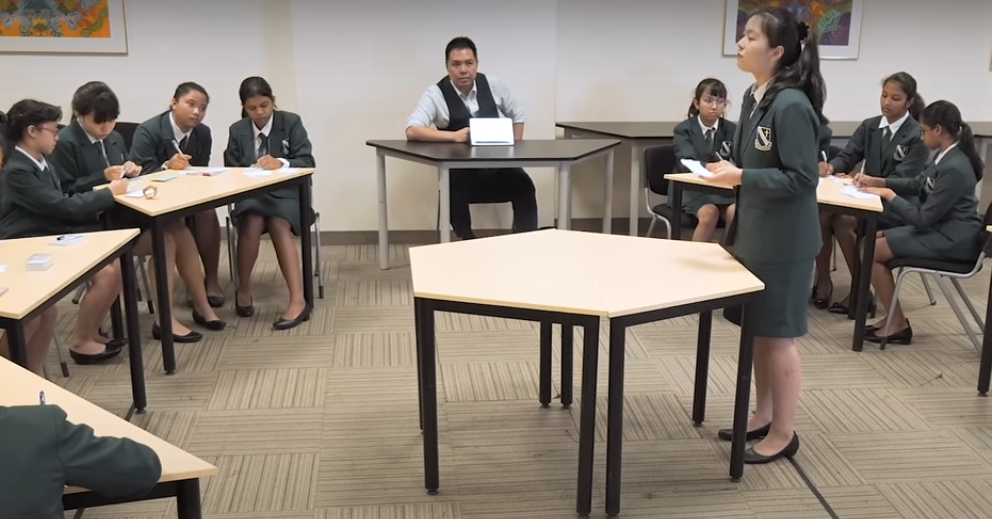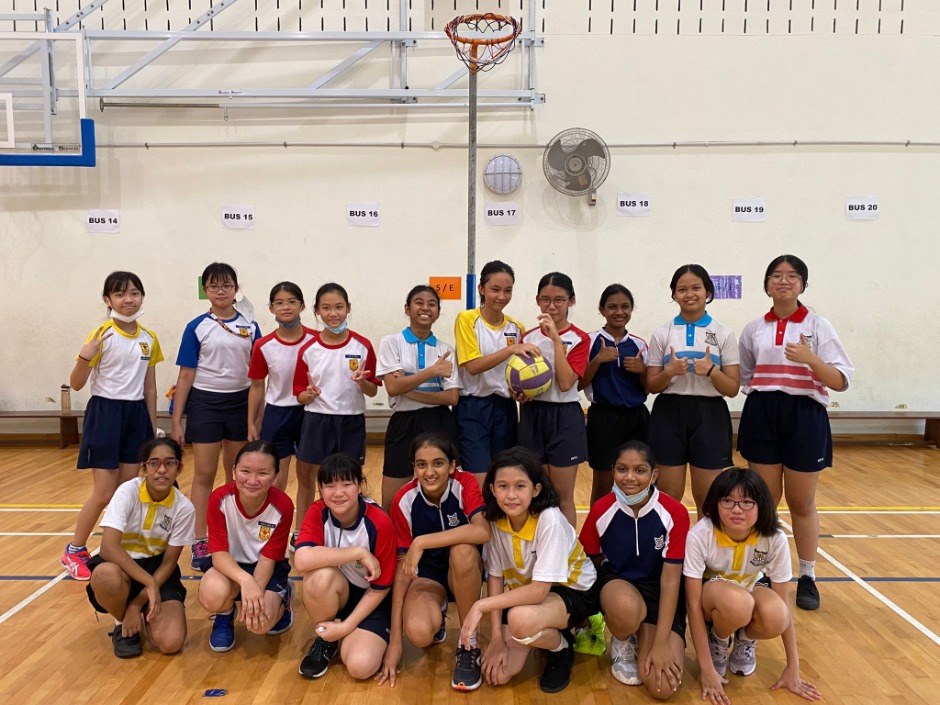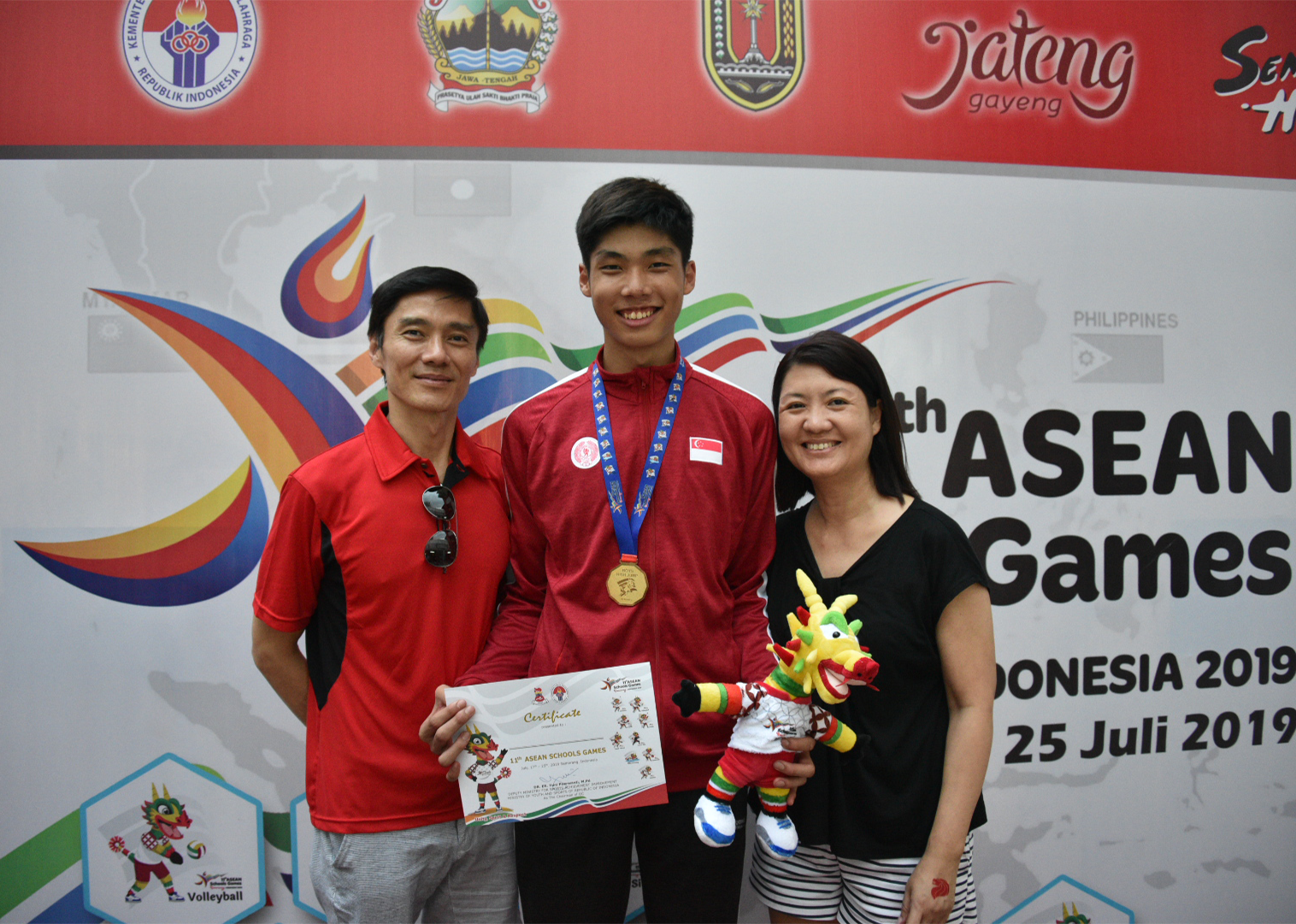Adjusting to big life changes can be tough for teenagers. Switching schools, new teachers and friends, increasing independence and exposure to new subjects and future pathways – all while navigating the chaos of puberty – can feel daunting. These shifts can leave parents bewildered: What’s going on with their big kid? Teachers shed light on common teenage worries and how to best support your teenagers during the turbulent secondary school years.
1. “I’m nervous about starting my new secondary school. What if I can’t fit in?”
Back-to-school nerves are amplified for students starting the term at an entirely new school. One thing that weighs heavily on their mind is being away from their primary school friends and having to make new ones, shares Mrs Lim-Chua Hwee Sze, Year Head (Lower Secondary) at Riverside Secondary School. The next worry is whether they would be able to cope with higher academic demands.
Instead of stressing over these issues, get your child to reframe their mindset. Mrs Lim says, “If your kid is entering secondary school, get them to think of it as a new beginning, and use this opportunity to learn more about themselves.”
She points out that this is also a time of change for parents as teenagers will naturally explore their identities, meet new friends and gain independence. “This is the time for parents to gradually let go so that their children can try to be more self-directed and independent,” she adds. A good start would be to discuss rules and expectations on the use of gadgets and social media, time management and organisational skills, and how to make responsible daily decisions.
2. “With all the new subjects and increased workload, I can’t cope!”
Students typically feel overwhelmed by the increased workload when they first enter secondary school and later, in Secondary 3 when they settle on their subject combination. Good time management and prioritisation of tasks are essential skills to help them better cope with these changes.
Mrs Lavinia Ranjan, Head of Department (HOD) of Humanities at Damai Secondary School, notes that many secondary school students struggle to stick to the schedules they create, and often feel frustrated when they cannot follow through. “From primary to secondary school, there’s double the number of subjects but the child has the same number of hours in a day. Many don’t know how to cope and really need guidance,” she says.
To maximise study time for multiple subjects, she suggests using the Pomodoro method, which involves splitting tasks into manageable intervals and short breaks. There are different variations of the Pomodoro technique. Here’s one way to do it, according to Mrs Ranjan:
- Decide on the task to complete.
- Work in 40-minute blocks, staying focused on the task.
- Take a 10-minute break to get a drink, do some stretching exercises, reply to messages, for example.
- Repeat this three times, then take a longer one-hour break.
This approach works well for secondary school students who cannot maintain focus for long stretches. “It recharges their brain and they won’t feel so tired. Many students think that if they stare at a page long enough, they will be able to absorb the information, but that never works,” says Mrs Ranjan.
3. “There are so many projects and homework, assessments to study for and CCA commitments – there’s no way I can juggle all of that.”
Unlike in primary school where most activities are suspended during exams, secondary school students must manage their time better as tests, along with projects, homework and other CCA and school commitments are usually spread out over the term.
Once again, time management is key, but it is a skill that needs to be learnt. “We cannot just throw children into the deep end and expect them to swim on their own. Some levels of scaffolding are required, especially when transitioning from primary school,” says Mrs Lim.
At Riverside Secondary School, students are taught to manage their time productively at the start of the new semester. They fill out a digital time management form, listing their weekly schedule, CCA dates, their goals and priorities, and even distractions.
“We review these plans during the mid-year parent-teacher conference to help students manage their time better and become more self-directed,” shares Mrs Lim. She also advises parents to use a similar strategy at home by having their child list down their weekly plans and goals.
Teachers also remind teenagers to prioritise self-care. “I always tell my students to be kinder to themselves. Many teenagers are very conscious of what people think of them, which adds stress. They must learn to take care of themselves, eat well, sleep well, and avoid having negative thoughts about their capabilities,” says Mrs Amanda Tan, HOD of Character and Citizenship Education at CHIJ St Theresa’s Convent.
4. “My parents want me to take Double or Triple Science – they think that it’s better for my future.”
Balancing academic expectations from parents with the child’s own interest and identity can be stressful, but this difficult conversation should not be side-stepped. Mrs Tan encourages parents to have open conversations with their child to understand what they want, rather than view certain subject combinations or career pathways as a “high stakes” situation.
Times have also changed; what parents are familiar with or believe is “better” for their child may no longer apply today or when their child enters the workforce, she adds.
“When we tell our children that certain subject combinations have an impact on their subsequent career pathways, it creates a sense of pressure artificially,” explains Mrs Tan. “Our educational system now offers more flexible pathways, and centring subject combination decisions based on the child’s strengths and interest can help them feel confident and more engaged in their learning.”
To hold a meaningful conversation, Mrs Tan urges parents to truly listen to their teenager’s thoughts and feelings. Avoid imposing judgement and expectations. “Don’t just pretend to listen. By really hearing them out, sometimes, you’ll be surprised by your child’s thinking and maturity,” she adds.
5. “I have no idea what I want to pursue in the future – having to make a choice now is stressing me out.”
While multiple academic and career pathways open more doors, the sheer abundance of choices can overwhelm teenagers. Mrs Tan shares that social media adds another layer of stress; seeing their peers’ achievements and successes as portrayed on social media can make them feel inadequate.
Without guidance, deciding on a pathway to take can be difficult for secondary school-aged students. “Even at the age of 40, 50 or 60, some people may not know exactly what they want. So this really points back to the whole concept of how our entire life journey should be one of lifelong learning and discovery,” says Mrs Tan.
She points out that real-world experience and exposure are crucial for discovering one’s interests and strengths. For example, go to career fairs and get some first-hand experiences in work-shadowing programmes, if available. Mrs Tan advises, “Build that repository of experiences and knowledge about how things work to give yourself the language or the ability to make a more informed decision.”
6. “Everyone around me seems to be flexing their relationship on social media. I feel pressured to start dating too.”
Romantic feelings during the teenage years will feel as exhilarating as a rollercoaster ride. These intense feelings are a normal part of growing up. Mrs Lim advises parents to take an open, non-judgemental approach. This keeps the door open for conversation, ensuring that they know what is happening in their teenager’s life.
For secondary school students, Mrs Lim says meeting and interacting with different people, pursuing non-academic interests and discovering all the things that make them unique is key. At this age, focusing all or most of their time on an exclusive relationship can be limiting – after all, there’s a whole world out there to explore.
Encourage teenagers to “enjoy school life fully”, Mrs Lim says. “Ask your teenager to immerse themselves in the various experiences that school has to offer, such as camps, learning journeys and CCAs, where they can develop themselves and interact with their peers. The teenage years are the best time to get to know more people and build up interpersonal skills. It is also a time for them to pursue their interests and discover their strengths.”






